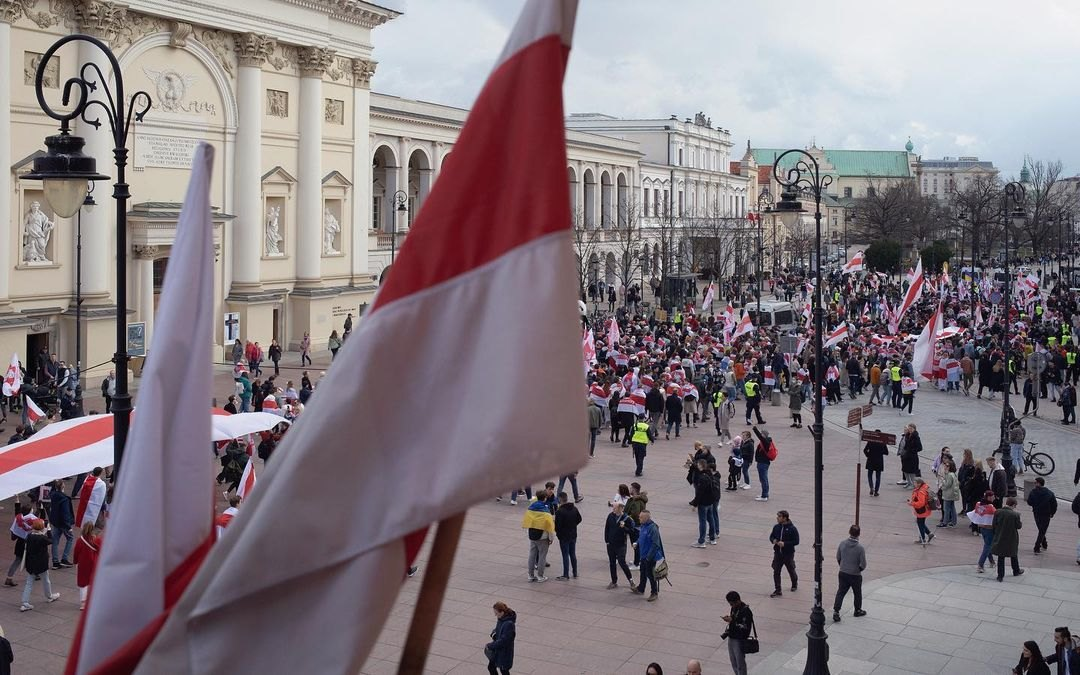Strategic dialogue with the USA boosts democratic forces as political exiles organise actions on Freedom Day
 The situation has not changed
The situation has not changed

Democratic forces led by Sviatlana Tsikhanouskaya elevate cooperation with Washington to “strategic dialogue”. Civil society draws international attention to Belarus on Freedom Day and organises actions abroad. However, in Belarus, the celebrations take place underground due to the repressive measures of security forces.
Democratic forces initiated the International Day of Solidarity with Belarus on March 25th to coincide with the 105th anniversary of the proclamation of the Belarusian People’s Republic. Several foreign politicians congratulated Belarusians on Freedom Day.
Political exiles and diasporas organised Freedom Day celebrations around the world. Mayors of cities such as Washington, Vilnius, and Bialystok joined the Freedom Day celebrations or announced an official holiday.
In Belarus, there have been no mass actions on the National Democrats’ traditional holiday for the third year in a row due to violent pre-emptive repression and intimidation by the security forces.
The regime increases the cost of social and political activism for exiles by expanding the persecution of relatives.
Ex-forces from ByPOL and cyber partisans investigate and expose disinformation by security forces regarding the anti-terrorist operation to eliminate a foreigner in Hrodna on the eve of Freedom Day.
Sviatlana Tsikhanouskaya and representatives of the United Transitional Cabinet met with high-ranking American officials in Washington to advocate sanctions, support for civil society, and the isolation of the Lukashenka regime.
During the visit, US representatives announced the launch of a “comprehensive strategic dialogue” in Belarus with democratic forces and civil society.
The USA imposed sanctions against three more Belarusian organisations and nine individuals.
British parliamentarians called on the government to strengthen sanctions against the Lukashenka regime.
Democrats and human rights activists draw attention to repression in Belarus. The UN Human Rights Council held a meeting on the topic, and the 38 OSCE countries have again invoked the Moscow mechanism in relation to Belarus following Sviatlana Tsikhanouskaya’s February speech before the OSCE ambassadors.
Tsikhanouskaya’s office and the UTC are attempting to mitigate the effects of Lithuanian restrictions on ordinary Belarusians. Democrats are expanding their influence on the development of the agenda of the Western capitals concerning Belarus with increasing pressure for sanctions and support for civil society.
Subscribe to our newsletter




Situation in Belarus
Constitutional referendum: main consequences


 Video
Video
How to count the political prisoners: are the new criteria needed?


 Video
Video
Paternalism In Decline, Belarusian Euroscepticism, And The Influence Of Russia


 Video
Video












